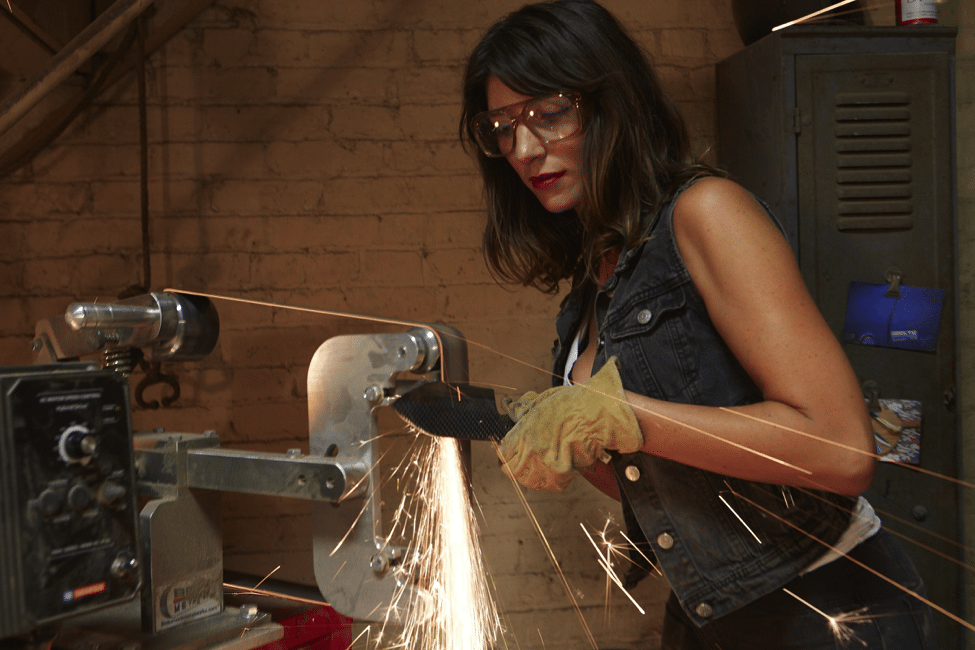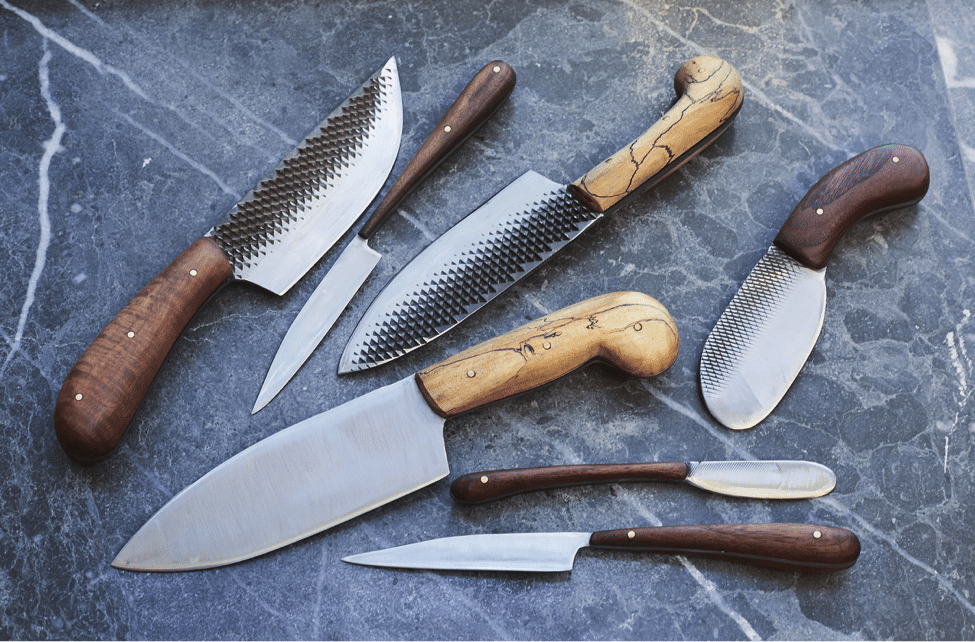How Chelsea Miller, Founder of Chelsea Knives, is Defying Convention

Skift Take
This sponsored content was created in collaboration with a Skift partner.
The Unbound Collection by Hyatt and SkiftX present The Freedom to be Extraordinary content series, which explores how breaking free from convention can lead to extraordinary success. These conversations will reveal how leading innovators and entrepreneurs approach creativity and how they’re embracing the freedom to be extraordinary.
For Chelsea Miller, working with her hands was never a foreign concept. It was very much a family tradition. As a daughter of a blacksmith and carpenter, Miller grew up watching her parents create things by hand in their rural home in Vermont. At 18, Miller headed to the Big Apple to pursue a career in acting, but it was only a matter of time before she decided to return to her roots.
Under her brother’s guidance, Miller began crafting knives as a hobby, giving them away to friends and family. It wasn’t until her friends encouraged her to sell them that she considered making a profit from her passion. “I took a booth at the Brooklyn flea [market] and began selling knives there one summer,” says Miller. “I met a lot of buyers from stores, as well as writers. I started to get written up and it just grew from there.” In just a few short years the craftswoman garnered attention from the New York Times and was being lauded by culinary greats like Mario Batali for her “bad ass” knives.
While being a woman in a male-dominated industry is one way to stand out, the Chelsea Knives founder also credits her unique approach to knife making. Although many people focus on functionality, Miller prides herself in taking the unconventional route. “For me, I'm more interested in creating something that hasn't been done before, even for myself,” says Miller. “I'm more interested in being surprised by what I'm making or being inspired by the unexpected, as opposed to something that is perfect.” All of Miller’s knives are crafted from recycled Vermont Farrier’s horseshoe rasps and feature wood found on her family’s property. Each knife is high-carbon steel giving them a unique feel compared to traditional chef knives. The cross-hatched texture comes in handy in the kitchen when grating cheese, garlic, and spices.
Women may not be flocking to the field of metalworking, but Miller insists it’s not because they’re any less capable. “I think the reason there are fewer women in my industry is purely the fact that not many have had the opportunity to try their hand at it,” she says. Despite the lack of representation, she admits that being a woman in a male-dominated field comes with advantages. “There’s definitely a wow-factor when I tell people what I do because it's not very typical,” she says.
In the past six years, Miller has managed to turn her hobby into a full-time job. And although she admits being an entrepreneur was never something she aspired to as a child, Miller has fully embraced living on her own terms. “I never really thought about whether or not I wanted to be an entrepreneur,” she says. “I've always just followed my dreams. While most people go through life on a similar track, I was never interested in that. I really rebelled against it from a young age. I've always wanted to do things myself and learn from my mistakes. That's what being an entrepreneur is about.”
Although Miller gained immediate support for her business from friends, families, and clients, she faced obstacles in her early days of knife making. “One of the biggest challenges came from wanting to live in New York City because it's so expensive, and not having had money to invest in my tools, my space, and my business plan from the very beginning,” says Miller. “It's very much been dollar-to-dollar and day-to-day, just slowly building with what I have.” She also points out that finding a landlord that would allow her to work on her craft wasn’t easy either. “Finding a suitable workspace was honestly the hardest part of it,” Miller says. “Not a lot of landlords are open to the idea of you creating fire and fumes in their space.” Even with the high costs, Miller says she’s happy she financed her passion on her own. “It’s been the biggest challenge, but also one of the largest rewards because I can really see for myself the time that I've invested and what I get back from that.”
When Miller is in need of inspiration she enjoys taking in her physical surroundings while traveling. During a recent trip to Italy, Miller met with shoe makers, knifemakers, and picture framers. When she returned to the U.S., her travels served as a constant source of creativity. “My favorite thing when traveling is to gather as much information as I can from locals,” says Miller. “I like to get a slice of a place as if I were going to live there. What it's like to have your coffee in the same place every morning and simply observe the rituals of the people that live there.”
Even a quick drive to the beach has the power to spark creativity within the knifemaker. “I love that just within a couple hours, you can see so many different types of landscapes, whether it be mountains, or beach, or countryside,” says Miller. “I love the freedom and the inspiration that each one of those places gives you. I’ll look at rock formations or the way the waves are coming in and think, ‘What kind of knife is inspired by this feeling or this sense of freedom?’”
Miller hopes she can motivate others to go against the grain. “My goal is to just be doing things based on how I feel and not ever try to conform to someone else's idea of how I should run my business, or live my life,” says Miller. “I hope I can be an inspiration to anyone who wants personal freedom.”






